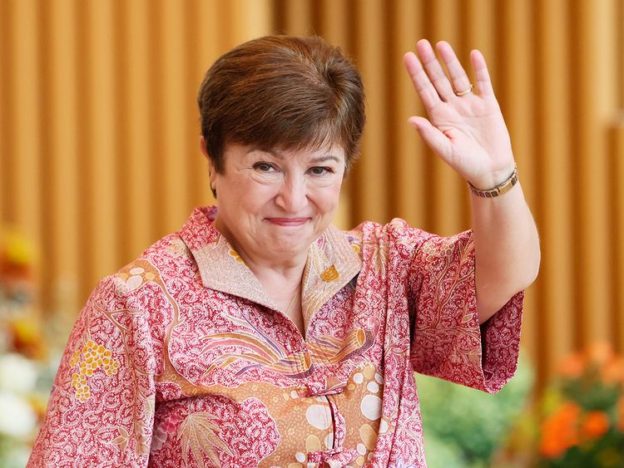The IMF predicted growth of 2.9 per cent this year, and will release new forecasts next month
International Monetary Fund (IMF) chief Kristalina Georgieva said on Sunday that risks to financial stability have increased and called for continued vigilance although actions by advanced economies have calmed market stress. She said 2023 would be another challenging year, with global growth slowing to below 3 per cent due to scarring from the pandemic, the war in Ukraine and monetary tightening.
She also warned that geo-economic fragmentation could split the world into rival economic blocs, resulting in “a dangerous division that would leave everyone poorer and less secure.” Even with a better outlook for 2024, global growth will remain well below its historic average of 3.8 per cent and the overall outlook remained weak, she said at the China Development Forum.
The IMF predicted growth of 2.9 per cent this year, and will release new forecasts next month.
Georgieva said policymakers in advanced economies had responded decisively to financial stability risks in the wake of bank collapses but even so vigilance was needed.
“So, we continue to monitor developments closely and are assessing potential implications for the global economic outlook and global financial stability,” she said, adding that the IMF was paying close attention to the most vulnerable countries, low-income countries with high levels of debt.
On China
Georgieva said China’s strong economic rebound, with projected GDP growth of 5.2 per cent in 2023, offered some hope for the world economy, with China expected to account for around one third of global growth in 2023. She urged authorities to rebalance the economy toward consumption. Georgieva said the “strong rebound” in the China economy is important not only for itself, but for the world.
“The robust rebound means China is set to account for around one third of global growth in 2023 —giving a welcome lift to the world economy,” Georgieva said on Sunday.
The IMF estimates that every 1 percentage point increase in GDP growth in China results in a 0.3 percentage point rise in growth in other Asian economies, she said.
She urged policymakers to work to raise productivity and rebalance the economy away from investment and towards more durable consumption-driven growth, including through market-oriented reforms to level the playing field between the private sector and state-owned enterprises.
To get there, China’s social protection system will need to play a central role through higher health and unemployment insurance benefits to cushion households against shocks. Such reforms could lift real GDP by 2.5 per cent by 2027, and 18 per cent by 2037.
https://www.business-standard.com/amp/world-news/world-may-split-into-rival-economic-blocs-it-ll-make-all-poorer-imf-chief-123032600879_1.html





